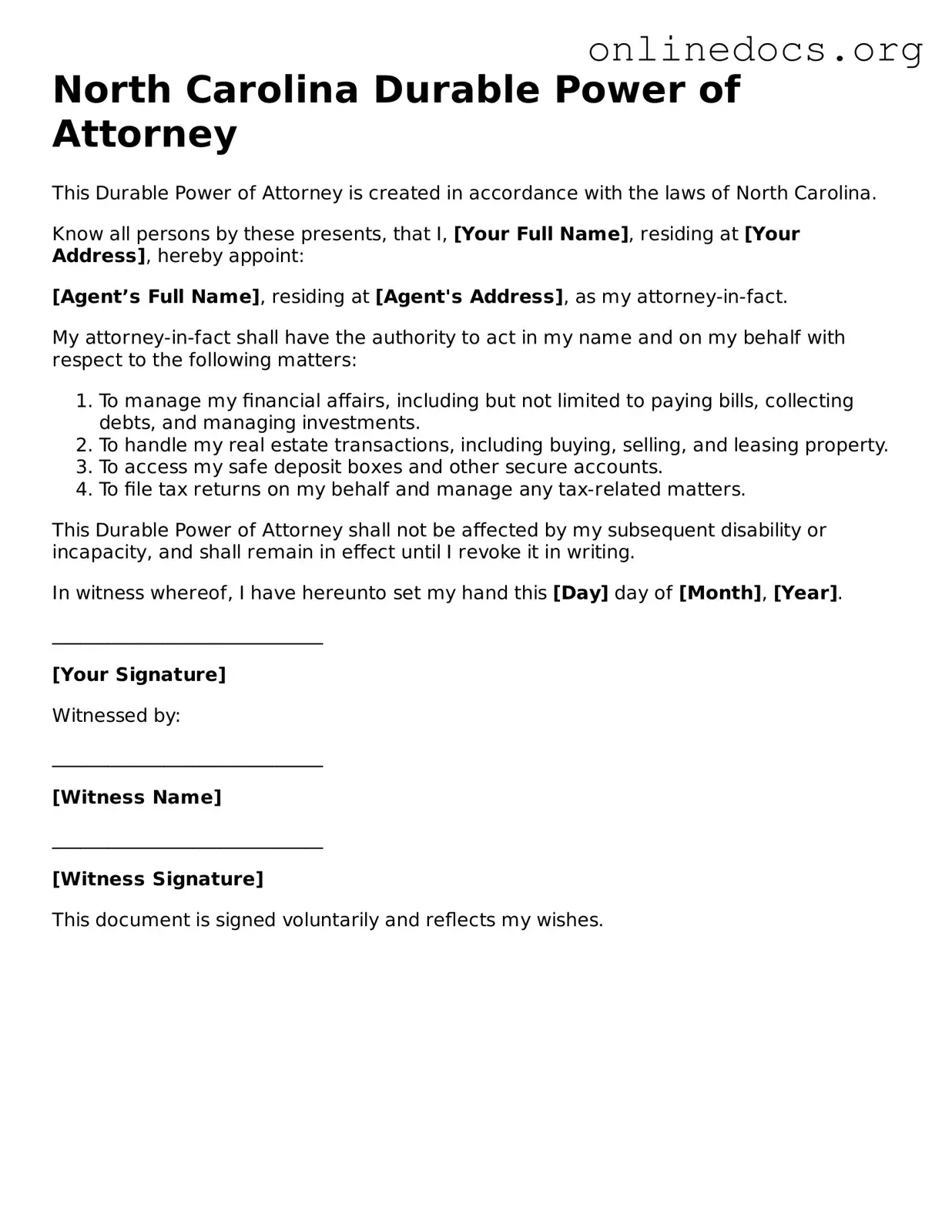The North Carolina Durable Power of Attorney (DPOA) form is similar to a General Power of Attorney (GPOA). Both documents allow an individual to appoint someone else to make decisions on their behalf. However, the key difference lies in the durability. A GPOA typically becomes void if the principal becomes incapacitated, while a DPOA remains effective even in such circumstances, ensuring continuous representation in financial matters.
A Medical Power of Attorney (MPOA) is another document closely related to the DPOA. While the DPOA focuses on financial decisions, the MPOA specifically grants authority to make healthcare-related choices. This includes decisions about medical treatments and end-of-life care. Both documents empower an agent to act on behalf of the principal, but they serve distinct purposes in different areas of life.
The Living Will is similar in that it deals with healthcare decisions, but it is more about outlining a person's wishes regarding medical treatment in the event they become unable to communicate. Unlike the MPOA, which designates someone to make decisions, a Living Will provides specific instructions about what kind of medical care a person does or does not want, particularly in terminal situations.
The Revocable Trust shares some similarities with the DPOA in that both can be used to manage an individual's assets. A Revocable Trust allows a person to place their assets into a trust during their lifetime, which can then be managed by a trustee. This document can help avoid probate and provide a clear plan for asset distribution, while the DPOA focuses on appointing someone to make decisions when the principal is unable to do so.
To facilitate your understanding of legal documents related to financial and healthcare decision-making, you may want to explore essential forms such as the Durable Power of Attorney (DPOA) and the Medical Power of Attorney (MPOA). These documents play a crucial role in ensuring that your wishes are honored during critical times. For those looking to streamline the process and ensure compliance, visiting fillpdf-forms.com can provide valuable resources and templates to help you get started.
A Healthcare Proxy is akin to the MPOA, as it designates someone to make medical decisions on behalf of another individual. While both documents serve the same purpose, a Healthcare Proxy is often used interchangeably with the MPOA in some states. The main focus remains on ensuring that healthcare decisions align with the principal's wishes, especially in critical situations.
The Guardianship documents are similar in that they involve appointing someone to make decisions for another person. However, Guardianship is typically established by a court when an individual is deemed incapacitated and unable to care for themselves. In contrast, a DPOA is created voluntarily by the principal, allowing them to choose their agent while they are still competent.
The Conservatorship documents also resemble the DPOA in that they involve the management of a person's financial affairs. A conservatorship is often established by a court to oversee the financial matters of someone who cannot manage their own finances. Unlike the DPOA, which allows the principal to choose their agent, a conservatorship appoints a court-approved individual to take control, often after a determination of incapacity.
The Financial Power of Attorney is closely related to the DPOA, as both documents grant authority to manage financial matters. The Financial Power of Attorney may be more limited in scope, focusing specifically on financial transactions, while the DPOA can encompass a broader range of decisions, including legal and business matters. Both documents ensure that someone can act on behalf of the principal when necessary.
